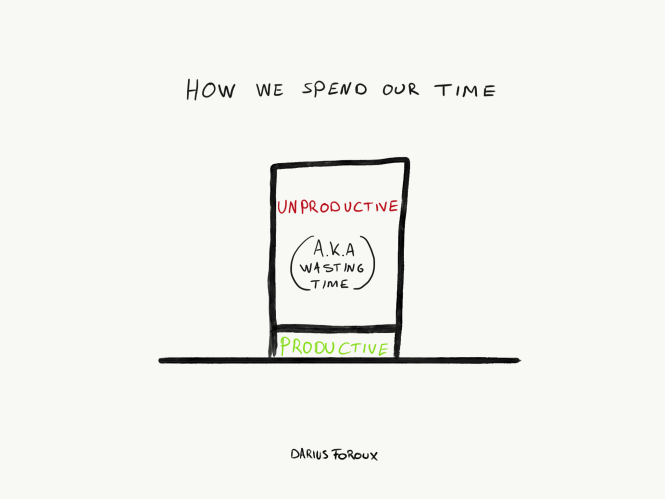by Melanie McNally Psy.D.
Harmonize your life with your values and finally seize control of your time.
KEY POINTS
- Identifying the disconnect between thoughts and actions is crucial for personal growth.
- Understanding core values helps in decision-making and evaluating alignment with actions.
- Conduct a thorough assessment of time spent and if activities aligned with core values.
- Taking small, impactful steps towards realignment based on observations and reflections creates change.
Ever catch yourself wondering, “Where has the time gone?” or lamenting, “What have I been doing with myself?” You’re not alone. These sentiments often reveal a misalignment between our actions and our values. It’s a subtle but profound disconnection that can leave us feeling adrift, with little to show for our efforts. When I hear clients talking about lost time, I know we need to take a step back so we can realign their daily actions with their overarching values.
Cognitive Dissonance Is Normal
You might be familiar with the term cognitive dissonance. It refers to an unpleasant state in which our thoughts don’t match our actions (Festinger 1957). We then either change our behaviors or change our thoughts since either will eliminate the negative state of mind.
For example, if I value meaningful connection with my husband but then realize I’m spending much of our time together scrolling mindlessly on my phone, I’ll either find ways to decrease my phone use and increase connection (change my behavior) or I’ll rationalize my phone use by thinking, “I’m in the middle of a big project right now,” or “He’s on his phone too so it’s not a big deal” (change my thoughts).

When our values and actions aren’t aligned, we usually experience some level of cognitive dissonance. Perhaps you notice some sort of inner conflict because you value determination but can’t get into an exercise routine. Or maybe you value commitment but feel constant anxiety because you’re not following through on promises you’ve made to yourself each day. You might even justify your behaviors to yourself or others (“I’m just too busy each day to make time for the gym.”). You may realize you’re seeking the approval of others, and when they affirm your actions, you feel some relief.
We all go through cognitive dissonance for different beliefs, values, and thoughts. It’s part of being human. But when we notice that we’re not living the life we want or consistently experiencing inner conflict, anxiety about our actions (or inactions), justification of our behaviors, or approval seeking from others, it’s time to deal with it and face it head-on.
Time to Realign
To realign our values and actions, I like to walk my clients through the following steps. Some take longer to do than others, but if you take the time to get clear on your values and accurately assess how you’re spending your time, you’ll find it easier to create the change you desire. Grab a notebook or journal to get started.
- Get clear on your core values. Core values are like a filter through which you make decisions. They offer guidance on whether something is a good fit for you. Start by creating boxes for each of the most important areas of your life like professional (which includes school and work), relationships (which includes family and friends), physical health (which includes exercise), and hobbies/leisure (which includes anything you do for fun or recreation). Use the following list of values to identify your three core values in each area of your life. Core values include, Excellence, Passion, Collaboration, Respect, Progress, Integrity, Adventure, Courage, Adaptability, Creativity, Compassion, Achievement, Honesty, Commitment, Freedom, Authenticity, Beauty, Friendship, Wisdom, Determination, Gratitude, Fairness, Balance, Equality, Boldness, Community.
- Do a time audit. Using your planner, calendar, or memory, write down everything you did for the last two days, from when you woke up to when you went to sleep. Include all the little things, too, like scrolling, reading a few pages in your book, listening to a podcast while commuting, responding to emails, and talking/texting with your sister.
- Categorize each task/activity with the area of life it corresponds to. For example, listening to a podcast might fall under leisure, while responding to emails might go with professionalism. You can categorize by putting a “P” for professional, “R” for relationships, “PH” for physical health, and “H/L” for hobbies/leisure next to each activity.
- Do a values audit. Next to each activity, rate how aligned it is with your core values in that area. Using a scale of 0-10, where 0 means it’s not aligned at all and a 10 means it’s completely aligned, rate every single activity. For example, if one of my professional activities was “responding to emails” and one of my core values for my professional area of life is passion, I’d rate that as a 1 since it’s not something I’m passionate about doing. If one of my hobbies/leisure activities is CrossFit and one of my core values for that area of life is adventure, I’d rate that as a 6.
- Reflect on your numbers. What patterns do you notice? Perhaps you notice that many of your professional activities are rated low while your hobbies/leisure activities are high. Where are you spending most of your time? For instance, are you spending most of your time on low-value or high-value activities? Is your day balanced between the different categories of life, or is much of your time spent in one area? Make any notes about your observations.
- What changes do you need to make? Considering your observations, where do you see the need for the biggest change? If you’re overwhelmed because it seems like a lot of change is needed, focus on one thing first. Which change would have the biggest impact? And if that still feels overwhelming, consider one small step you could take immediately that would lead you towards change.
Prioritize
Recognizing and addressing cognitive dissonance is pivotal for aligning our values and actions. As we navigate the complexities of daily life, it’s common to experience moments of inner conflict, discomfort, and justification when our behaviors stray from our deeply held beliefs and values.
By engaging in thoughtful clarification, we can initiate the process of realignment. So, the next time you ponder lost time or question your actions, remember that it’s an opportunity for growth and transformation. Embrace it and embark on the journey to living authentically and purposefully.

